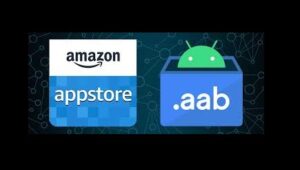
C# Interview Questions are usually related to programming languages like Java, C, and CSS.
While most companies use these to power their application development, others prefer to do it with a high level of technical detail.
Companies that deal in more specialized fields often prefer to have a developer who has both skill sets.
The problem arises when the candidate cannot provide detail on generic programming. As an example, what is the difference between a void pointer and a null pointer?
Most people will give an example like a void pointer, but such a vague definition does not help the hiring committee define the necessary C# Interview Questions.
To prepare for interview questions about sewing and generic functions, take a moment to think about what types of functions are commonly used in your field.
You may need to learn more about delegates, as well as how to deal with generics.
You might also like: Informal letter format – Growwpedia
Answering C# Interview Questions may be more straightforward if you learn to use a formal parameter. Define the necessary parameters in advance, then ask the interviewer to elaborate on the remaining details.
One of the essential aspects of C# is its support for multiple namespaces. A C# developer is familiar with the convention that a lowercase N is used for a lowercase S in classes and vice-versa.
In other words, C# programs can have one of eight common programming styles.
One of these styles is named Object-Oriented Programming (OOP), first introduced by C# designers, and later implemented in various programming languages, such as Java and C#.
One aspect of C# That is also vital to employers is the type system. It supports two different methodologies for resolving compile-time and runtime issues.
The first, known as the traditional runtime type system (RTSI), and the second, called the generic type system (GAS), allows a programmer to create generic objects capable of handling compile-time and runtime issues at the same time.
These issues include out-of-life’s, null references, ambiguous types, and excessive generics.
There are five different namespaces in C#. One is the global scope, which defines all the types, values, and keywords in an application.
Another is the local scope, which is limited to the types, names, and values defined within a specific file.
The other namespaces are named internally, which means they are local to an individual programming session or project, transient, global, static, and abstract.
One C# Interview question that is common is “What is the C# compiler? “which means a programmer must provide an example or explain how the C# compiler creates the actual code used by the C# program being constructed.
There are two different ways to define the C# compiler: the reflection and type system.
In a reflection compiler, It can find information about the types through reflection.
A type system compiles the code with specific data types, while an example of this is the base class, which is used throughout the C# programs.
An important C# Interview question is “In C# what is the interface?”.
The interface lists generic functions, and they are exposed via the generic or delegate methods.
This means when an interface calls a function, it expects a specific result, which is the method’s return type.
An example of a C# interface is the public abstract member function, which allows any instance of that class to have the ability to call the abstract member.
You may also like: Formal letter format
One C# Interview question that is frequently asked is “what is public visibility?”
This C# question is easy to answer as it is an aspect of encapsulation.
Public visibility is simply a set of static or dynamic visibility for any C# program.
Static visibility allows a class to be created at any time without creating an instance of that class. In contrast, dynamic visibility is the ability to create models of a C# class at runtime.
What To Remember While Giving C# Interview?
How can you be sure that you’ll come across as a worthy candidate for the job?
This is one of the most challenging yet essential questions that any C# programmer should be asked during an interview.
An interviewer wants to be sure that he’s hiring someone who can contribute to their team and not someone who will take the job without any effort.
To answer the question, you’ll need to make sure that you know the basics of your career and how you can contribute to the company’s development.
Here is what you should keep in mind while preparing for your interview.
-
Know what you’re getting into: C# interview guides often say that an interviewer shouldn’t ask you about past job experience or qualifications, but instead, they should be looking for your personality and work ethic.
While that is true, you should still know some information about the role you’re applying for.
This way, when an interviewer asks you questions regarding the company and your previous job experiences, you’ll be able to justify why they hired you in the first place.
-
Learn the basics: Most importantly, it would be best if you learned how to answer interview questions.
C# interviews don’t involve too much technical jargon, which means that you don’t have to focus on reciting your resume at the drop of a hat.
Instead, the best way to become more comfortable with the interview questions is to think back to the ones that you’ve faced before and make sure you can answer them quickly and professionally.
It would be straightforward to sound robotic during an interview, so make sure you practice some interviewing skills.
-
Make eye contact: An excellent way to establish rapport with the interviewer is by making eye contact.
Eye contact is an intense form of body language that shows that you are interested in the interviewer and not just trying to jam the job interview in their face.
While it’s an integral part of an interview, an interviewer will also consider whether or not you look interested in the company.
-
Learn how to address interviewers adequately: When done correctly, you should address the interviewer before he has even had a chance to ask you a question.
However, it can be easy to mumble your way through your response when you’re nervous, so make sure you practice your interview-ready responses beforehand.
Even if you’re not afraid of talking to large numbers of people, it never hurts to have a few canned answers ready if the interviewer gets stuck for words.
-
Keep it simple: While C# interviews may seem simple, the truth is that they require a great deal of skill and planning.
For instance, if you’re asked to describe your previous job responsibilities, you need to be prepared with at least three alternatives.
You should also know how the company plans to use your skills once hired and how to express yourself in the most appropriate terms for the C# job you’re interviewing for.
You’ll want to show the interviewer that you understand and respect the C# code and that you are committed to following the program’s standards.
When done well, these are the kinds of things that will differentiate you from every other candidate.
-
Practice makes perfect: It may sound cliche, but the interview is an experience that involves both learning and practice.
If you’re asked to demonstrate your C# knowledge on a whiteboard or video, don’t just dash in and try to impress the interviewer.
Instead, take some time to study up on basic C# knowledge and then go forth and practice your speaking skills. Your interviewer won’t care as long as you’ve demonstrated your commitment to the project.
What to remember while C# interview tips usually concentrate on being prepared.
However, nothing will hurt your chances of landing the job more than failing to come across professionally.
By treating the interview like a professional conversation, you will come across as genuine and able to do the job at any level of complexity.
Your interviewer will respect your professionalism and realize that if you can manage the intricacies of C# programming, you’ve got the skills required to lead the C# team. And the rest, as they say, is just practice.







